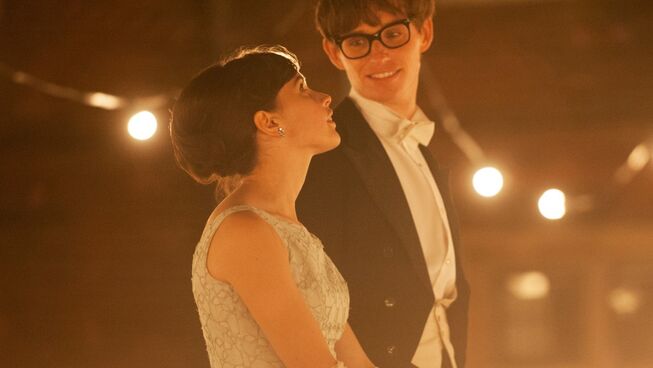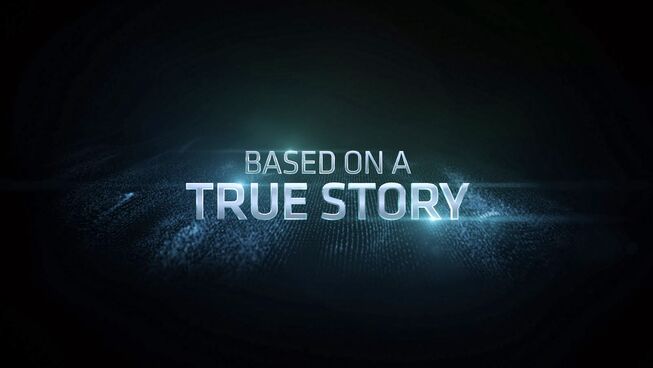
3 out of 5 stars
"I have a slight problem with the celestial dictatorship premise." - Stephen Hawking
Walking into the cinema...
Not being a scientist or a physics enthusiast, studying the life of Stephen Hawking was not on my lifetime to-do list. Admittedly, his stature as a scientist and his debilitated state makes him a fascinating enigma in human history. The story looks good, but the draw for the film would be Redmayne and Jones playing the lead roles. The story looks interesting and the players look to be the right choice for telling of this tale.
"There should be no boundaries to human endeavour. We are all different. However bad life may seem, there is always something you can do, and succeed at. While there's life, there is hope." - Stephen Hawking
Who is Stephen Hawking? If you have to ask, you have not been paying attention for the past few decades. He is the world renowned physicist, cosmologist and author of A Brief History of Time and The Theory of Everything. Yet, what makes his life fascinating to those outside of the scientific world is that he contracted motor neurone disease (Lou Gehrig's Disease) at the age of 21 and was given two years to live, but has survived for many decades. His story expands beyond these components, but The Theory of Everything does a wonderful job of the telling of the relationship between the famous physicist and his wife, Jane.
The film refers to his role and influence in the scientific world, but the primary focus of the story is their relationship and the influence they had on each others lives. The drama travels through how they met, to the awareness of his eventual handicap and their lifetime battle for his life, career and family. There might be apprehension with the documentary director, James Marsh at the helm, but it is unfounded because he manages to bring this docu-drama to life. With a central character that is restricted to a chair for the majority of the film, Marsh creatively capitalises on the character of Jane and the others that surround Hawking in his lifetime. The combination of the story and the actors masterfully playing their roles, this is a captivating film.
The strengths of the film rely on the depth of the relational story and the brilliant casting. There are a multitude of characters in this tale that travels through six decades, but the heart of the story is reliant on Stephen and Jane. When their relationship is strong, the story is rich and engaging and when their relationship fails, the story suffers and brings in a necessary, but undesirable reality. This might sound strange in the realm of biopics, but the Hawking's story is appealing when they are closest and when they look outside of their relationship for comfort and solace, their gravitational appeal wains and the story loses footing. Eddie Redmayne (Les Miserables) and Felicity Jones (The Invisible Woman) are perfectly cast for the lead roles. They capture the attention and passion of the Hawking's relationship and travel through the time line with brilliant skills. The only weakness in their performance is their physical attractiveness. It is hard to imagine the actual characters were this good looking, but it does not hinder the tale.
The director, James Marsh, manages to move the story through time without much difficulty. He keeps the story moving at a comfortable pace that helps to show the love and challenges that permeated the Hawking's lives. This story has the potential for the overly dramatic, or even worse, a boring narrative, but Marsh manages to keep the correct pace that is believable and engaging. Based on the commentary of the film, there are some nuances and artistic licence that needed to occur to bring the story to the big screen, but none were compromising to the story or the characters.
The Theory of Everything is a biopic of a world-renown physicist, but the intriguing component of the film is the philosophical and theological tracks that it travels down. Stephen is a firm believer in science and is an outspoken atheist and socialist. He is brilliant within his field, but when entering into the theological he is outside of his realm of expertise. The journey of his life portrayed in the film continually comes back to the necessity to answer the 'God' question. Jane is a Christian and their differences in belief of something beyond this world continued to be a source of conversation and study. In the attempt to define and discuss time and how the universe was created, he is continually confronted with the consideration of God and a creator.
It might be easy to dismiss these considerations as part of Hawking's history, but the questions of sin, creation and God should be a consideration for anyone. The primary points of contention in the film came back to many of these universal questions that transcend time. The film is entertaining and educational, but do not be dismissive of the bigger questions that this film brings to light.
Leaving the cinema...
You do not need to be a scientist or a fan of The Big Bang Theory to enjoy this film. It will strengthen the fan base for Stephen Hawking, but it does humanise the man and his life. Eddie Redmayne will receive a multitude of award nominations for his portrayal of the chair-ridden physicist, but the heartbeat of the story is found in the relationship between Stephen and Jane. A film about science should challenge the brain, but who would have thought it would challenge the theological considerations of this world. This was a good film that will cause you to think more about life and God.
Reel Dialogue: What are the bigger questions to consider from this film?
- How did the world come into existence? (Genesis 1-2, Psalm 33:9, John 1:3)
- Does God exist? (Psalm 19:1, Romans 1:20)
- How can you define sin? (Deuteronomy 9:7, Joshua 1:18)
Written by Russell Matthews based on a five star rating system @ Russelling Reviews #russellingreviews



